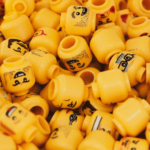
10 Dec Are We Over-Diagnosing Our Kids?
Are we are too quick to find disorders in children’s personality traits? How the over-diagnosing of children effected one mother.
When my daughter was just 18 months old, a 23-year-old childcare worker diagnosed her with an autism spectrum disorder. She did not use the word ‘autism’ per se, but as an educational psychologist and a former special-education teacher, I knew all too well where “makes next to no eye contact”, “compulsive about routines” and “oversensitive to noise” were heading.
And despite all my years of professional experience and training, and more importantly, my expert knowledge of my daughter, I was absolutely freaked out. I embarked on a frantic search for developmental paediatricians, occupational therapists and child psychologists to evaluate the opinion of this 23 year old.
I look back at that time, with my daughter now eight years old, and feel sick to my stomach.
I let a woman with little training or experience taint how I viewed my beautiful, gentle little girl. I concurred with her opinion that my daughter’s way of communicating distress and unhappiness was somehow due to her own deficits, and I actually maintained that belief for another two years. I let the language of deficit and diagnosis undermine me and my daughter.
Like a big red texta drawing crude circles around the bumps and ripples of childhood, diagnosis and deficit have become key features of how we view our children today.
Quirky and shy children such as my daughter are labelled with autism, and bubbly, energetic children, with ADHD.
Strong-willed, defiant types who struggle with hours of institutional childcare have oppositional defiant disorder.
As a child psychologist who has worked in schools for children with special needs, early-intervention centres and mainstream schools, I do truly value diagnosis in guiding intervention that can make an enormous difference to children and their families. The truth is, however, that diagnosing children is relatively simple.
There is far more skill and experience involved in knowing when a diagnosis does not apply than when it does.
The childcare worker who hinted at autism described behaviours that did indeed fit in with the triad of signs we use to classify the disorder; problems in communication (lack of eye contact), socialisation (not playing with other children) and restricted and repetitive behaviours (compulsive about routines). However, her textbook knowledge of autism spectrum disorder does not encapsulate the extreme and debilitating nature of the condition, nor does it describe how it pervades all aspects of interaction, including situations and relationships in which the child feels safe and secure, or account for the enormous differences in thinking style, motor function and sensory processing.
Autism, when it actually presents, is quite obvious to professionals like myself who have worked with many individuals and families struggling with the condition. But with my professional hat off, as a parent I was as guilty as the childcare worker in letting the language of diagnosis colour my perspective.
As parents, we have a wealth of knowledge about our children far beyond that of the professionals who work with them.
We need to stop underestimating this knowledge, and instead value and cherish it. We need to let it, rather than the language of deficit and diagnosis, guide how we best support and nourish our children’s lives.
Words By Lara Silkoff




